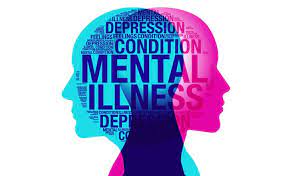Introduction
In today’s digital world, social media has become an integral part of our lives. From sharing moments of joy to staying connected with loved ones, these platforms offer a myriad of benefits. However, it’s crucial to examine the potential impact they have on our mental well-being.
This article delves into the complex relationship between social media and mental health, shedding light on both the positive and negative aspects, and ultimately encouraging a balanced and mindful approach.
The positive side
Social media has undoubtedly transformed the way we communicate and connect. It provides a platform for self-expression, enabling individuals to share their passions, creativity, and unique perspectives. It fosters communities of support and belonging, connecting people from diverse backgrounds and allowing them to find like-minded individuals. Moreover, social media serves as a powerful tool for raising awareness about mental health issues and promoting positive conversations.
The negative side
While social media offers numerous benefits, it also poses challenges to our mental well-being. One of the most prominent issues is the tendency to compare ourselves to others. As we scroll through carefully curated feeds, it’s easy to feel inadequate or envious of others’ seemingly perfect lives. This constant comparison can lead to negative self-perception, low self-esteem, and a distorted sense of reality.
Cyberbullying and online harassment are other alarming consequences of social media. The anonymity it provides can encourage individuals to engage in hurtful behavior, causing significant emotional distress and even long-term psychological harm. It’s crucial to address these issues by promoting kindness, empathy, and responsible online behavior.
The impact on mental health
Excessive use of social media can have detrimental effects on mental health. The constant bombardment of information, notifications, and the pressure to keep up can lead to feelings of anxiety, stress, and a sense of being overwhelmed. Furthermore, the addictive nature of social media can disrupt sleep patterns, hinder productivity, and contribute to feelings of isolation and loneliness.
Finding balance
While it’s impractical to completely abstain from social media, adopting a mindful approach can help mitigate its negative impact. Setting boundaries, such as limiting screen time and establishing tech-free zones, can promote a healthier relationship with social media. Engaging in offline activities, cultivating real-life connections, and practicing self-care are essential in maintaining a balanced and fulfilling life.
Conclusion
Social media’s impact on mental health is a complex issue. While it can enhance our lives in many ways, it’s essential to be aware of the potential risks. By maintaining a mindful approach and finding a balance between online and offline experiences, we can navigate the digital landscape more effectively.
Social media is just one aspect of our lives, and it’s important to prioritise our mental well-being above all else. Taking breaks, engaging in activities that bring us joy, and fostering meaningful connections in the real world are all vital for maintaining a healthy mindset.
Ultimately, we have the power to shape our social media experiences. By cultivating a positive online environment, practicing self-care, and being mindful of our mental health, we can harness the benefits of social media while protecting our well-being.
So, let’s embrace the digital era with caution, mindfulness, and a commitment to our mental health.




